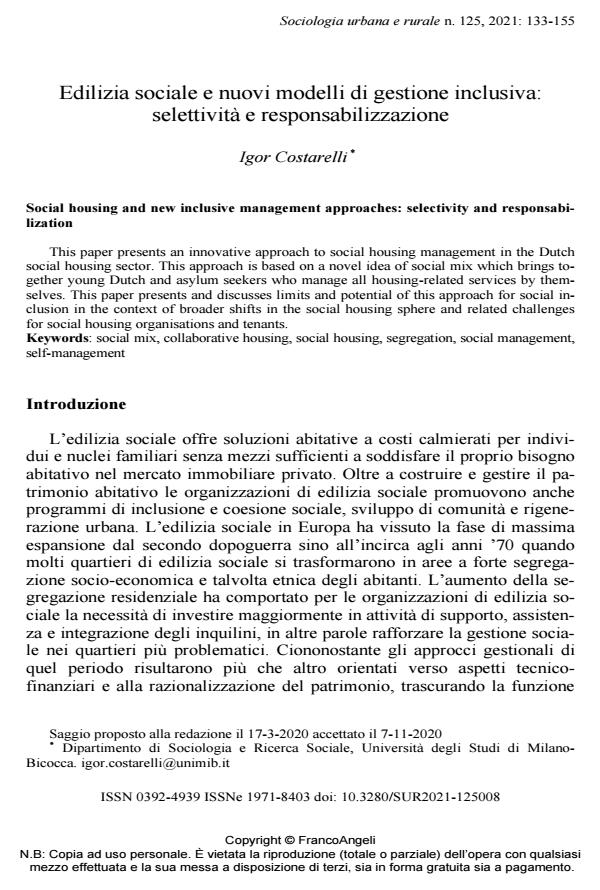Social housing and new inclusive management approaches: selectivity and responsabilization
Journal title SOCIOLOGIA URBANA E RURALE
Author/s Igor Costarelli
Publishing Year 2021 Issue 2021/125
Language Italian Pages 23 P. 133-155 File size 397 KB
DOI 10.3280/SUR2021-125008
DOI is like a bar code for intellectual property: to have more infomation
click here
Below, you can see the article first page
If you want to buy this article in PDF format, you can do it, following the instructions to buy download credits

FrancoAngeli is member of Publishers International Linking Association, Inc (PILA), a not-for-profit association which run the CrossRef service enabling links to and from online scholarly content.
This paper presents an innovative approach to social housing management in the Dutch social housing sector. This approach is based on a novel idea of social mix which brings to-gether young Dutch and asylum seekers who manage all housing-related services by them-selves. This paper presents and discusses limits and potential of this approach for social in-clusion in the context of broader shifts in the social housing sphere and related challenges for social housing organisations and tenants.
Keywords: social mix, collaborative housing, social housing, segregation, social management, self-management
Igor Costarelli, Edilizia sociale e nuovi modelli di gestione inclusiva: selettività e responsabilizzazione in "SOCIOLOGIA URBANA E RURALE" 125/2021, pp 133-155, DOI: 10.3280/SUR2021-125008